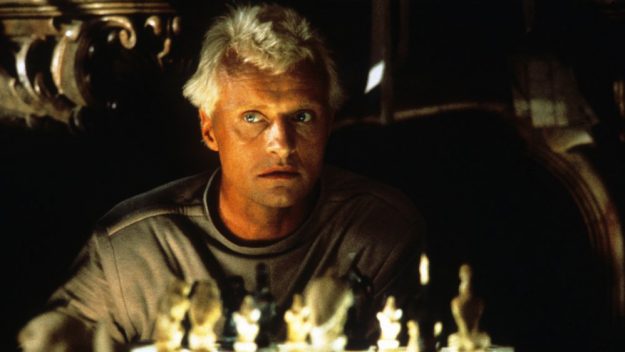
Rutger Hauer was arguably the best-known Dutch actor around the world. It’s for a reason that in 1999, he was named the Best Dutch Actor of the Century by the Dutch public. Early in his career, Hauer started to collaborate with Paul Verhoeven and established himself as a major name in the Netherlands, but he wanted to make more films. That’s why he went abroad, as he loved being a film actor and wanted to keep doing it.
His career had been inconsistent; you could see him in major Hollywood productions or some Europudding, direct-to video features but then again he enjoyed having a variety of roles and he always brought an unexpected quality to them. His strikingly charismatic appearance always made an impression, regardless if the role was big or small.
There was still a huge admiration for him among filmmakers, which is obvious from the tributes pouring from Guillermo del Toro, Edgar Wright, and many more. Maybe he was still going to get a chance to play yet another iconic role. But he still managed to leave a unique career behind, a career full of interesting roles and projects.
Hauer was made a knight in the Order of the Netherlands Lion in 2013. He also founded Starfish Association, a non-profit organization aimed at raising help and awareness of HIV/AIDS, focusing especially on support to children and pregnant women.
One of Hauer’s last wishes was that Starfish should continue its charity activity. Most recently appearing in films like “Valerian” and “The Sisters Brothers,” Hauer also has some posthumous releases upcoming. His fans will miss his presence in movies, and here’s a tribute with 10 of his many great roles.
10. Ladyhawke (1985)
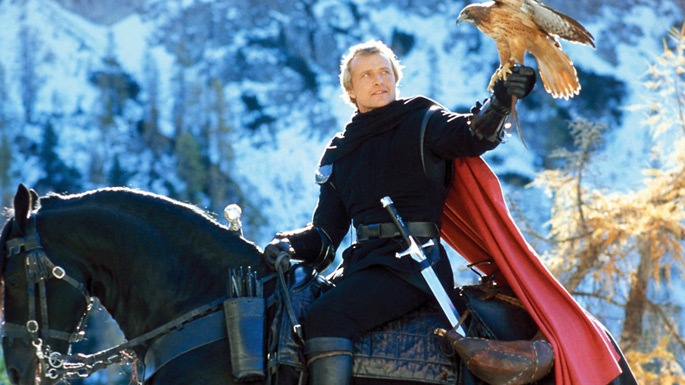
“When I worked on ‘Ladyhawke’ it was my first time ever in Italy. I drove the big truck around to Cortina d’Ampezzo, L’Aquila – close to Rome, and to the castle close to Vicenza. It was very exciting. Had a lot of funny adventures.”
Playing a Robin Hood figure in the TV series “Floris” (1969), set in the Middle Ages, made him a star in his homeland. So it was always obvious that he was well-suited in period films. Hollywood kept trying to cast him as a villain, but Hauer convinced Richard Donner to give him the part of Navarre; the character has been hunted by the Bishop’s men for two years, ever since he escaped with the Lady Isabeau, who the Bishop has lusted after.
It’s a bit of an odd film with pacing problems, but still a charming story. Hauer’s performance is so wonderful that it makes everything work better than it could with many other actors. He’s mysterious, menacing, but also kind and noble. It’s such a nuanced performance, but it contains some of the elements that made Hauer such a distinctive figure in cinema.
His handsome appearance also fits the character and the setting perfectly. The action scenes – in which it looks like Hauer didn’t use a stunt double for most of them – are fun to watch, even if they’re not overly ambitious.
It’s also a showcase to his “movie star” charisma. When you watch the film, you’ll keep thinking how wonderful it would be if he could get more starring roles. Hauer may have been a character actor for most of his career, but his work here shows that he had everything to be a convincing Hollywood leading man.
9. Blind Fury (1989)
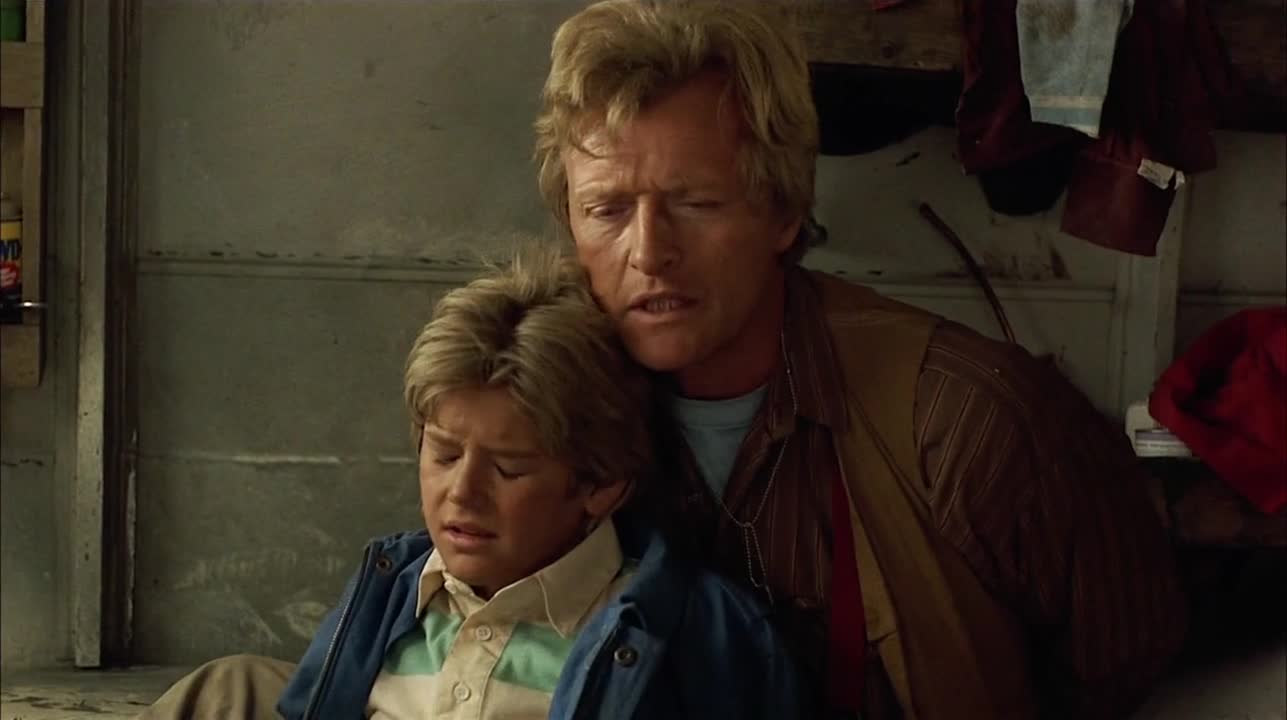
“I’m quite proud of it because the combination of not being able to look & do swordplay at the same time is an achievement not many can do. I like that film. The music. But how difficult things are that I do is not my favourite whine. It was physically my fittest part.”
A loosely-based, modernized remake of “Zatoichi Challenged,” the 17th film in the Japanese Zatoichi film series, “Blind Fury” provided a challenging role for the actor, and it’s also fun to watch. Hauer plays a blind, sword-wielding Vietnam War veteran who finds himself in trouble. Not only does he sell the blindness, but he expertly brings such wit to his role that it is wildly entertaining to watch.
It was a different kind of role for him; he displayed his comedic side here and even though the film serves as another testament to his convincing action hero persona, the material also gave Hauer a chance to show some of his sensitive side. His natural charm also helped. Hauer went through intense sword training, and learnt how to walk and move like a blind man, with the help of a real blind judoka Lynn Manning, which again showed how much he was dedicated to his craft.
This may not be a “great movie,” but it’s still fun, silly light entertainment that is highly elevated by Hauer’s performance. The movie may come off as dated for some, but if you take it as it is, it’s still fun.
8. Turkish Delight (1973)
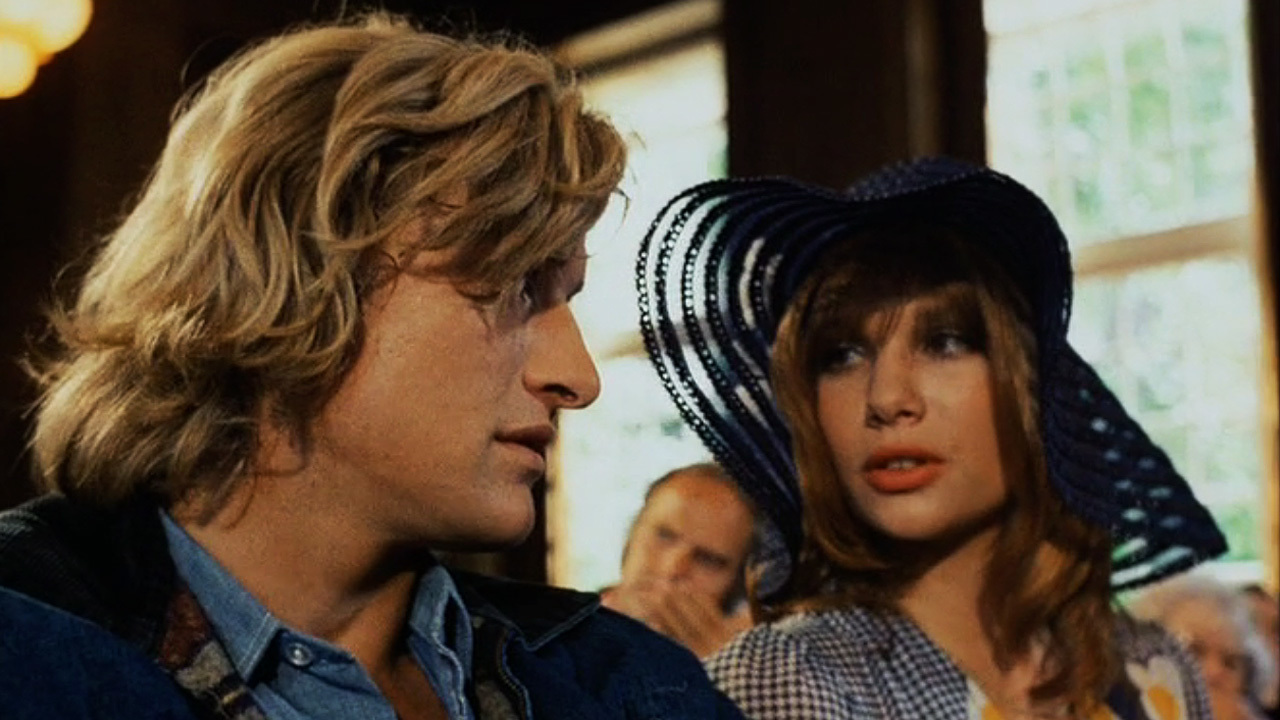
“When it had a moment of release in the States, they called it pornographic. This film, it ran in Europe in a ton of cinemas for a year, outrunning ‘Cabaret’ and ‘Last Tango In Paris.’ It was incredible, and what was so amazing about it was that it was subtitled in English. You know, it was in its own language, and I don’t think that ever happened, before or after.”
Those who usually associate Verhoeven with films like “RoboCop” and “Starship Troopers” can especially be surprised by his early works like this one. The most successful film in Dutch history at the time, “Turkish Delight” was nominated for an Academy Award for Best Foreign Language Film, and in 1999 it received a special Golden Calf Award for Best Dutch Film of the Century.
The film is about a stormy, erotic, and star-crossed romance between a gifted sculptor and a young woman who picks him up while he is hitchhiking. They soon marry, but she eventually tires of him and abandons him for another man, sending the sculptor into depression. Hauer’s captivatingly impulsive performance also served as a breakout work for him as a movie actor.
It’s a movie that feels mostly episodic, but Hauer manages to create an interesting psychological profile throughout the film. The film still can be off-putting for some; it can be ugly and uncomfortable sometimes, but it also shows what kind of a risk-taker actor Hauer had always been.
7. Soldier of Orange (1977)
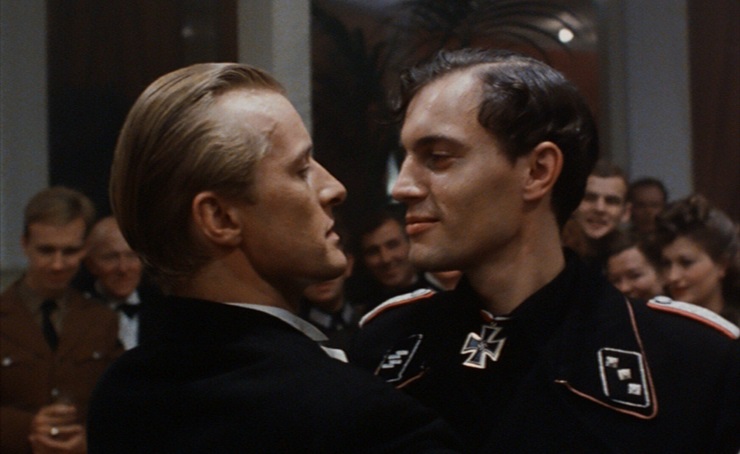
“I was born in the middle of the war. And I think for that reason I have deep roots in pasificism. Violence frightens me. I once owned a gun but the thought of using it so appalled me that I threw it away. I am very strong but the only thing I could kill is a fly.”
At the 1999 Netherlands Film Festival, “Turkish Delight” was voted as the Best Dutch film of the century. And what film came in second? Yet another Verhoeven-Hauer collaboration. The most expensive Dutch film at its time, the plot of the film follows Dutch students joining the resistance movement against the German occupation of the Netherlands during World War II.
This is quite an epic story dealing with the fates of six university friends, but the focus is mostly on Hauer’s character and as you can imagine, he’s excellent as ever. Hauer has made films in different languages and here in this film you witness him go from speaking Dutch, to English, to French, to German, and back to Dutch again, and he manages to be quite compelling in all of them.
“Turkish Delight” was a success, but it was this movie that brought Hauer and Verhoeven their tickets to Hollywood. And deservedly so. Hauer again brings some vividly amazing energy to his part, making him both mysterious and attention-grabbing.
It still remains as a great movie and one of the best films to see World War II from the Dutch perspective; the movie should be seen by anyone who wants to know why and how Hauer become an international star. It should also be noted that Erik Hazelhoff Roelfzema later became a father figure to Hauer after they met during filming.
6. Hobo with a Shotgun (2011)
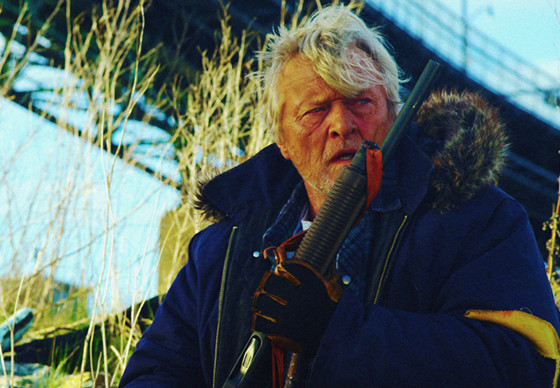
“Jason felt that I shouldn’t play it for jokes; that I should be deadly serious and try and deal with the simplicity of his [the Hobo’s] own mind, his sense of pride and honour and purpose. My task was to be deadly serious, because Dave [Brunt] is also very serious about this stuff: you can’t fool around with honour and pride, and sensibility.”
An absolute badass role. Hauer always had some sort of cult following and a notable fan base. So it only made sense to cast him in films like “Sin City,” as it also made sense to cast him in “Hobo with a Shotgun.”
Based on a faux-trailer of the same title featured in the Quentin Tarantino and Robert Rodriguez film “Grindhouse,” the movie is a crazy wild ride and a gory homage to low-budget exploitation thrillers, which was sure to please fans of its kind ever since the trailer came out.
The story is basically simple: a homeless vigilante blows away bad guys. Hobo could be just a cheap joke, but Hauer adds lots of new dimensions to the character. He’s so fully dedicated to the part that he never winks at the audience and rightfully so.
Portraying his character with such raw emotion, he’s well-aware of the campy tone of the movie and the nature of his role and he knows how to work out his character. He basically nails it. Hauer had some great late-period roles, but none of them were more open to gain a cult following more than “Hobo with a Shotgun.” He also gives his character a kind of a soft side that makes him easy to like. Many of the lines are self-consciously funny and he delivers them in the best way possible.